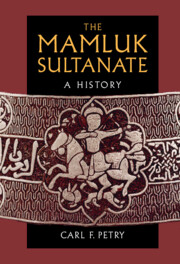Book contents
- The Mamluk Sultanate
- The Mamluk Sultanate
- Copyright page
- Dedication
- Contents
- Figures
- Maps
- Maps
- Introduction
- 1 Synopsis of Events
- 2 Ethos of the “Slave-Soldiers” Regime
- 3 The Mamluk Sultanate from a Global Perspective
- 4 Vocational Classes
- 5 The Political Economy
- 6 Cultural Legacy
- 7 The Rural Environment, Gendered Issues, Minority Communities, Sufi Practice
- Reflections
- Notes
- Bibliography
- Index
Introduction
Published online by Cambridge University Press: 05 May 2022
- The Mamluk Sultanate
- The Mamluk Sultanate
- Copyright page
- Dedication
- Contents
- Figures
- Maps
- Maps
- Introduction
- 1 Synopsis of Events
- 2 Ethos of the “Slave-Soldiers” Regime
- 3 The Mamluk Sultanate from a Global Perspective
- 4 Vocational Classes
- 5 The Political Economy
- 6 Cultural Legacy
- 7 The Rural Environment, Gendered Issues, Minority Communities, Sufi Practice
- Reflections
- Notes
- Bibliography
- Index
Summary
In 784H/1382CE, North African historian and political philosopher Ibn Khaldun (d. 808/1406) arrived in Alexandria, Egypt’s Mediterranean port, ostensibly on his way to pilgrimage in Mecca but in fact as a refugee from political controversy in the Maghrib. Ibn Khaldun’s fame had preceded him, and the reigning Sultan, al-Zahir Barquq, appointed him senior judge of the Maliki school of Islamic law in Cairo, the first of several prestigious offices he would hold as a jurist and scholar. Ibn Khaldun spent the rest of his life in the city revising his monumental history of North Africa and the central Islamic lands, Kitāb al-ʿibar. Ibn Khaldun is known to the modern world primarily for his analysis of social structures in a volume titled al-Muqaddima fi’l-taʾrīkh (Introduction to History), which he wrote as an explanatory preamble to his larger work (cf. Chapter 6).
- Type
- Chapter
- Information
- The Mamluk SultanateA History, pp. 1 - 4Publisher: Cambridge University PressPrint publication year: 2022

